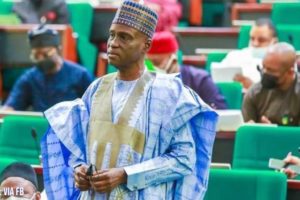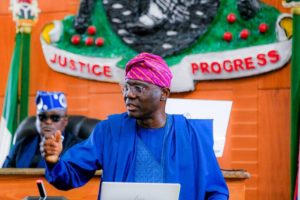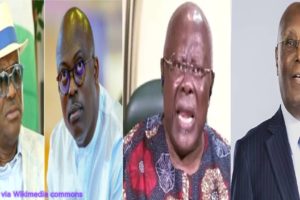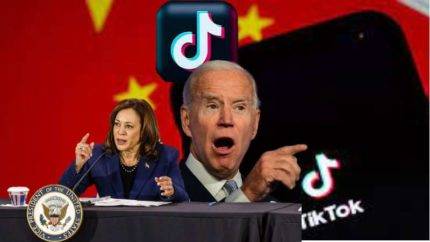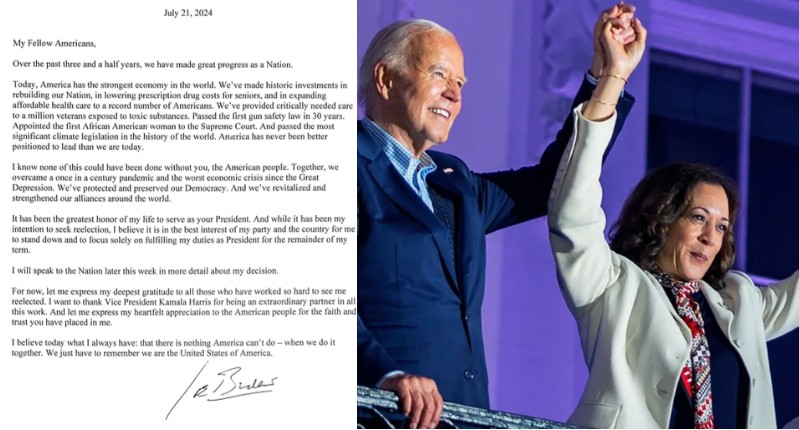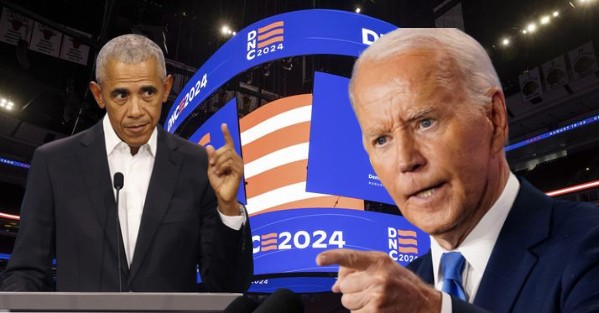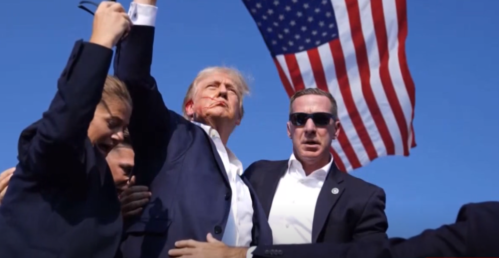War Against TikTok– OGM | Social media platforms continue to play a pivotal role in reaching black voters, particularly among the younger demographic. According to surveys conducted by the Pew Research Center, black social media users express a deep personal connection to these platforms, finding them essential for engaging in issues they care about and connecting with like-minded individuals. Platforms like Twitter, under the umbrella of “Black Twitter,” have become vital spaces for collective organization, support, and amplification of Black voices and causes.
Empowering Black Voices: Black Twitter’s Role in Advocacy
Black social media users often view these platforms positively, attributing significance to their ability to hold powerful individuals accountable and give a voice to underrepresented groups. The online community’s impact extends beyond the virtual realm, translating into real-world activism and awareness. The Biden-Harris campaign, recognizing the influence of social media, must navigate these platforms strategically to connect with and address the concerns of black voters, especially the younger demographic.
The phenomenon of Black Twitter exemplifies how online communities can drive change. By collectively organizing, offering support, and increasing visibility for Black issues, Black Twitter showcases the power of social media in shaping conversations and influencing public opinion. Understanding and leveraging these dynamics should be a crucial component of any political campaign seeking to resonate with black voter.
Impact and the Unanticipated Backlash of War Against TikTok
President Joe Biden’s administration’s campaign against TikTok, driven by concerns about national security and data privacy, has inadvertently created unforeseen consequences, particularly among black voters and young Americans. Initially viewed as a bipartisan effort to curb potential threats, the campaign has gained traction, but the Biden-Harris team appears to have overlooked its impact on public sentiment, especially during critical geopolitical events.
The demand for TikTok’s sale or potential ban, amid the ongoing tensions with China, has sparked unexpected reactions on the platform. As the Israel-Hamas conflict unfolded, TikTok became a battleground for narratives, with some users expressing solidarity with Palestine. The lack of counter-messages has allowed a shift in public perception, with the platform inadvertently turning some American voters sympathetic to Palestine and critical of the Biden administration.
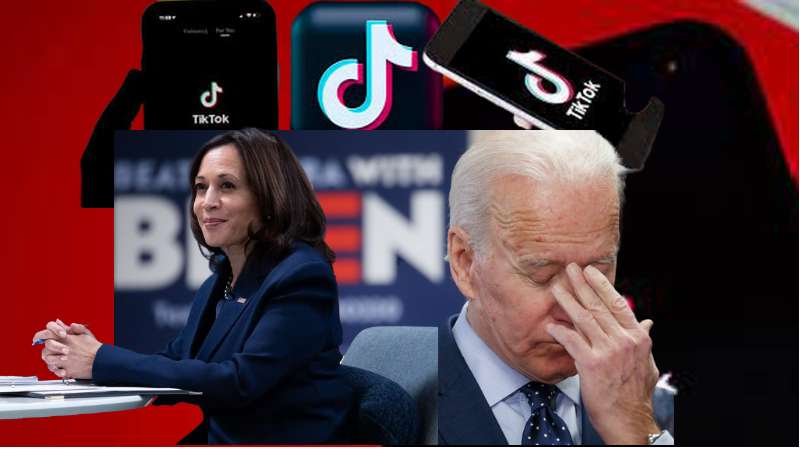
Navigating the TikTok Terrain: A Crucial Consideration for Biden-Harris Campaign
The Biden-Harris Campaign must pay attention to the dynamics within the TikTok space among other social media platforms. This platform holds the potential to either pose a significant challenge or provide a boost to any political campaign, as evidenced by recent events during the Israel-Gaza conflict. It is crucial to acknowledge that a space instrumental in Biden’s 2020 victory might be shifting away from him without careful consideration. An illustrative example is Aidan Kohn-Murphy, a 19-year-old Harvard freshman, who successfully utilized TikTok to garner support for Joe Biden in 2020. Interestingly, he is now redirecting his efforts to leverage the platform to prevent Biden from initiating its shutdown.
Kohn-Murphy, the founder of TikTok for Biden, has clarified that his advocacy is not in defense of TikTok as a company but rather a defense of his entire generation. The group, now operating as Gen Z for Change, has transformed into a political nonprofit with 500 creators amassing a combined following of 500 million across various platforms. The question arises: Why risk being on the opposing side of such a substantial and influential virtual community?
Reassessing the War Against TikTok: The Rise of Social Media Justice Warriors
Despite the administration’s efforts to wage War Against TikTok, experts argue that a complete ban may be challenging to enforce. James Lewis, director of the Strategic Technologies Program at the Center for Strategic and International Studies, emphasizes the limitations of such actions, suggesting alternative approaches to mitigate potential threats. The unintended consequences, including the shift in public sentiment and the emergence of anti-Biden sentiments on TikTok, highlight the need for the Biden-Harris team to reassess their approach and consider engaging with the platform directly.
As TikTok becomes a battleground for political narratives, the Biden-Harris campaign must reconsider its strategy and engage with the platform to counter the emerging anti-Biden sentiments. Ignoring the influence of TikTok’s “influencers” and the potential for narratives to shape public opinion could have long-lasting effects on the administration’s relationship with young voters, particularly those who have turned away due to geopolitical narratives and propaganda.
TikTok’s community, often led by “influencers,” has showcased a shift in sentiment. Previously critical of Trump and the GOP, these influencers are now turning anti-Biden, with Russian and Hamas propaganda gaining traction. The Biden-Harris campaign should recognize the importance of being present on TikTok to counter these narratives actively. Ignoring this influential platform may result in a loss of support from a demographic crucial to their success.
Black Voter and Gen Z Influence: The Implications of Biden’s “War Against TikTok“
With an awareness that Congress may encounter obstacles in an outright ban on TikTok, the Biden-Harris team must strategize alternative approaches in their “War Against TikTok“. Actively participating in the TikTok community, disseminating counter-messages, and articulating the administration’s stance on crucial issues can facilitate regaining support and dispelling misinformation. The dynamics of TikTok’s influence on public sentiment demand a strategic and proactive war against TikTok from the Biden-Harris campaign, ensuring a continual connection with voters across diverse social media platforms.
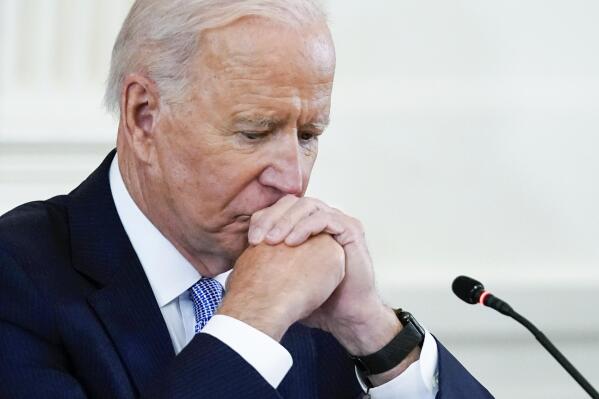
Is the Biden-Harris Campaign factoring in the impact of Gen Z and a cohort of young black voters, consisting of teens and individuals in their 20s born after 1996? This demographic, renowned for its liberal and Democratic leanings, played a pivotal role in the 2022 midterms, contributing to an outcome that exceeded expectations for the Democratic Party. The potential ban on TikTok appears to be a strategic move in the Biden campaign’s war against TikTok, possibly an attempt to create distance from a crucial support base.
Despite Gen Z constituting only 9% of the electorate in the 2022 midterms, according to NBC News exit polls, their influence is escalating with each passing year as more individuals within this age group reach voting age. Approximately 1 in 5 of them relies on TikTok as a source of political information, a statistic comparable to those turning to teachers and classmates, as revealed by a recent survey. The question arises regarding the strategic wisdom behind any campaign, Biden’s included, turning away from this substantial and politically engaged bloc of voters, especially when TikTok serves as their virtual home in the ongoing war against TikTok.
Navigating the Delicate Balance: Redefining the “War Against TikTok“
In advising the Biden administration, it is essential to advocate for a more strategic direction in their “War Against TikTok.” The challenge lies in crafting a nuanced approach that distinguishes between valid concerns regarding China’s overreach and the invaluable role TikTok plays as a social media platform. The administration must navigate this intricate balance, acknowledging the geopolitical challenges posed by China while preserving the potential benefits of TikTok for their reelection bid.
To effectively address this dichotomy, the Biden administration should recalibrate their narrative by highlighting the imperative of safeguarding national security without casting a broad shadow on the entire TikTok community. It is crucial to convey a targeted message that separates genuine apprehensions about data security from the broader advantages of TikTok as a platform for creative expression, activism, and political discourse. By doing so, the administration can address China’s overreach while assuring the millions of American TikTok users that their platform remains a vital channel for self-expression and information.
Moreover, the administration should proactively engage in diplomatic efforts to tackle the broader geopolitical issues with China, simultaneously addressing concerns about data privacy and security. This strategic approach is not just about countering China’s influence but also about leveraging the potential of TikTok as a valuable tool for connecting with voters in the forthcoming reelection bid. By carefully navigating these challenges and implementing a well-crafted strategy, the Biden administration can effectively manage their “War Against TikTok,” ensuring a balanced response to both national security and the dynamic role of TikTok in the American social media landscape.
Table of Contents
Discover more from OGM News NG
Subscribe to get the latest posts sent to your email.

